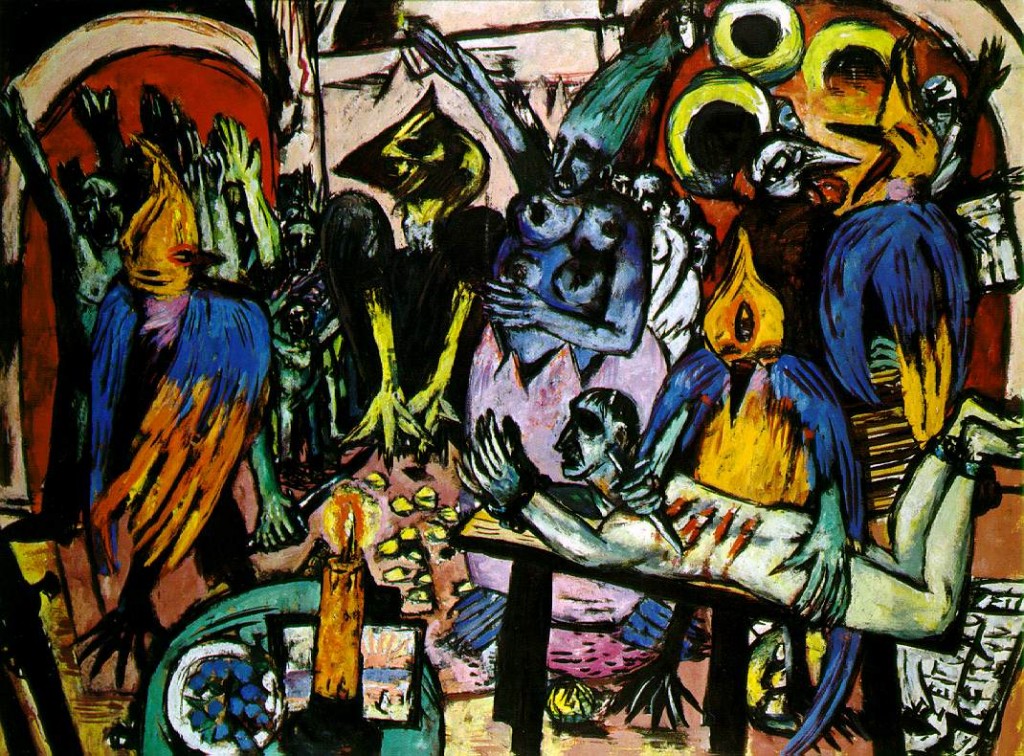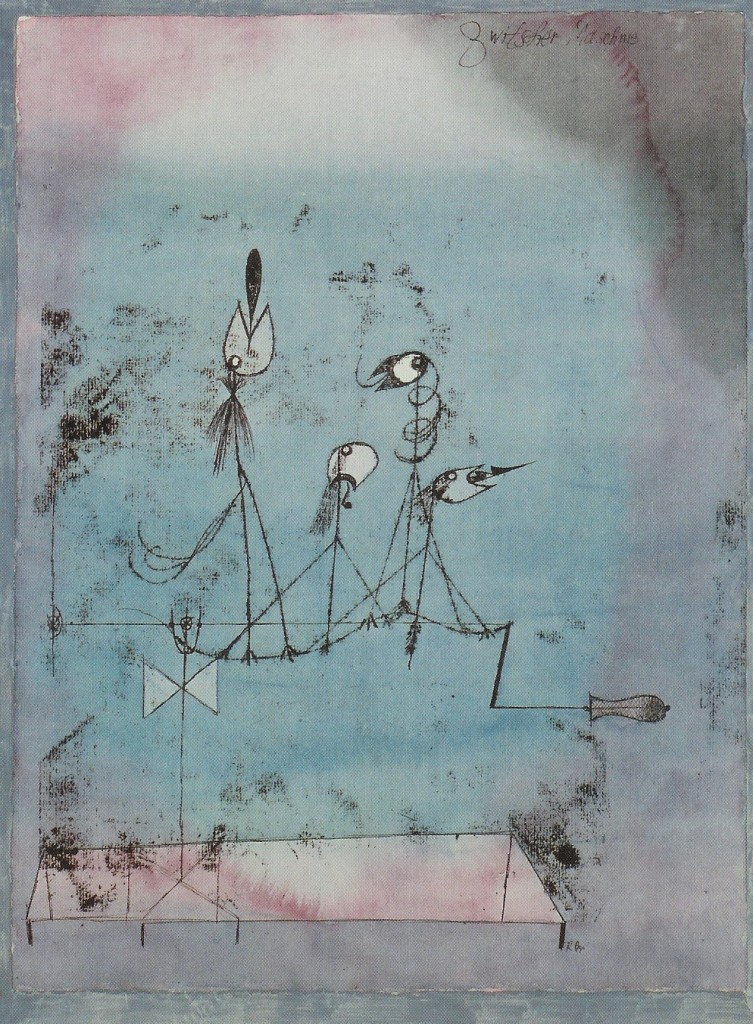Piety? God? O beautiful, much misused words. I’m both when I have done my work in such a way that I can finally die. A painted or drawn hand, a grinning or weeping face, that is my confession of faith; if I have felt anything at all about life it can be found there.
The war has now dragged to a miserable end. But it hasn’t changed my ideas about life in the least, it has only confirmed them. We are on our way to very difficult times. But right now, perhaps more than before the war, I need to be with people. In the city. That is just where we belong these days. We must be a part of all the misery that’s coming. We have to surrender our heart and our nerves, we must abandon ourselves to the horrible cries of pain of a deluded people. Right now we have to get as close to the people as possible. It’s the only course of action that might give some purpose to our superfluous and selfish existence–that we give people a picture of their fate. And we can only do that if we love humanity.
Actually it’s stupid to love humanity, nothing but a heap of egoism (and we are a part of it too). But I love it anyway. I love its meanness, its banality, its dullness, its cheap contentment, and its oh-so-very-rare heroism. But spite of this, every single person is a unique event, as if he had just fallen from Orion.
Max Beckmann, 1918
Waggish
David Auerbach on literature, tech, film, etc.
Month: May 2010
By my lights, then, Brandom’s attitude to metaphysics seems excessively irenic. I want to follow Hume, Ramsey, Ryle, Wittgenstein and Blackburn, in dismissing, or at best deflating, large parts of that discipline. Whereas Brandom — though engaged in fundamentally the same positive enquiry, the same pragmatic explanatory project — seems strangely reluctant to engage with the old enemy.
Nowhere is this difference more striking than in the case of modality. In my view, modality is the soft underbelly of contemporary metaphysics: the belly, because as Brandom himself notes in Lecture 4, so much of what now passes for metaphysics rests on it, or is nourished by it; and soft, because it is vulnerable to attack from precisely the direction to which the subject itself is most keen to be most receptive, that of naturalism. It seems to me that Brandom’s treatment of modality provides precisely the tools required to press this advantage — precisely the sharp implements we need to make mincemeat of modern metaphysics. Hence my puzzlement, at his reluctance to put them to work.
I had planned to end there, but the story is a little more complicated. Modern metaphysics turns out to have two underbellies, both of them soft —a fact which underlines what a strange and vulnerable beast it is, in my view. The second belly is”representationalism” — the fact that much of the subject is built on appeals to reference, and other robust semantic notions. Here, too, as I’ve said, I read Brandom as a somewhat ambiguous ally of the traditional pragmatist attack. On the one hand, he offers us profound new insights into how to do philosophy in another key; on the other hand, as the remark I quoted from Lecture 6 indicates, he sometimes seems to want to get out of it some pragmatic substitute for platonic representation — some surgery which would reconstruct the referential belly of the beast, as it were, in a new and healthy form. Once again, I think that that’s the wrong move. The twobellied beast should simply be put out of its misery, and no one is better placed than Brandom to administer the coup de grâce.
Huw Price, Brandom and Hume on the Genealogy of Modals
I have to say, those are pretty much the two things that got me out of analytic philosophy: modal metaphysics and the sort of reference it requires not to be specious. What’s strange is that there seemed to be so much progress was being made against them in the middle of last-century, before a growing backslide starting around 40 years ago. Or to put it analogically, if Wittgenstein was FDR, then Brandom is Bill Clinton.

The Fireside Angel
© 2024 Waggish
Theme by Anders Noren — Up ↑


